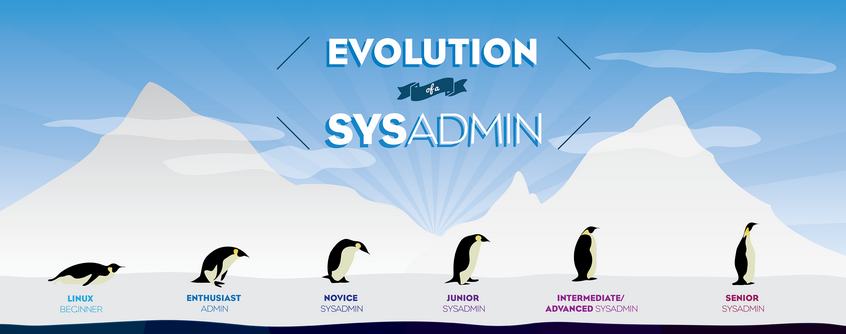
As the world evolves for systems administrators, “Linux is exploding with new ideas and it’s a little scary …,” as commenter Mike Tarkowski put it.
Keeping up with emerging technologies in cloud computing such as OpenStack will be key to navigating this changing landscape, according to Randy Russell, director of certification for Red Hat.
Over the last year, the continuing rise of open cloud platforms and the increasing need for support for open source security projects have created even more demand for pros with special expertise in that area. Fifty-one percent of surveyed hiring managers say knowledge of OpenStack and CloudStack has a big impact on open source hiring decisions, according to the 2016 Linux Foundation/Dice Open Source Jobs Report. The skills they’re most aggressively seeking include DevOps, 58 percent, systems administration, 48 percent; and network administration, 32 percent.
Along with new skills, there are some core skills employers are looking for. Employers recruiting on college campuses ranked leadership and the ability to work as a team as their two most-sought-after traits, according to Job Outlook 2015 survey by the National Association of Colleges and Employers. But they’re also looking for strong communication skills, problem-solving skills, a strong work ethic and analytical/quantitative skills.
At every level, they seek three core skills: the ability to work with others; the ability to listen to directions and to troubleshoot problems; and the ability to communicate, both verbally (in person and on the phone) and in writing.
Beyond that, here are 10 essentials at each level in the evolution of systems administrators, gleaned from The Linux Foundation, LISA’s list, job descriptions and sources such as analyst Victor Janulaitis at Janco Associates.
Novice sysadmin
-
Strong drive to learn
-
Ability to follow instructions
-
Strong analytical skills
-
Knowledge of the platform used, gained from class work or experience in a prior job. Familiarity with the operating system and its commands/utilities at a user level; ability to edit files, use basic utilities and commands, navigate through the file system, install software on workstations.
-
Knowledge of security requirements.
-
Interest in structured approaches to system configuration management
-
Strong intellectual curiosity, motivation to advance in the profession
-
Take first professional certification. CompTIA Linux+, Linux Professional Insitute’s LPIC-1, and The Linux Foundation’s new Linux Foundation Certified System Administrator (LFCS) are good choices. These certs require knowledge such as Managing file permissions, creating backups, partitioning storage devices and troubleshooting filesystem issues.
-
Contribute to an open source infrastructure project, such as Red Hat-sponsored oVirt.
-
Join a local Linux meetup group as well as online communities such as LinkedIn’s Linux Users & Open Source Developers group.
Junior sysadmin
-
Working experience of platform used – at least 24 months
-
Proven track record of resolving basic issues associated with system configuration management, resource sharing and basic networking concepts.
-
Ability to train users in applications and operating system fundamentals and to write basic documentation.
-
Experience in resolving security issues
-
Experience in records retention and destruction policies
-
Experience with user identity management
-
Ability to monitor and identify network policy violations and system breaches
-
Ability to communicate in non-technical terms to non-technical people
-
Understands strategic direction of enterprise’s system and business operational direction
-
Ability to write scripts in some administrative language, such as Perl, Python, VBScript or Windows PowerShell.
Senior sysadmin
-
Work experience on multiple platforms, with at least four years with the current platform
-
Familiarity with the principles and practice of system configuration management and a broad understanding of the role of desired configuration as part of strategic organizational knowledge
-
Ability to solve problems quickly
-
Ability to establish processes and automate them to track and implement system solutions
-
Ability to modify system to meet new security requirements
-
Ability to participate in setting strategic direction for system
-
Viewed as an expert in the system by peers
-
Ability to write proposals or papers
-
Ability to act as a vendor liaison, make presentations to customers or client audiences or professional peers
-
Ability to work closely with upper management.
